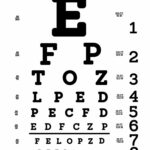The internet, a sprawling labyrinth of acronyms and neologisms, constantly evolves. New terms emerge, proliferate, and occasionally, fade into obscurity. Amidst this linguistic churn, “eow” has carved out a niche, primarily in online gaming communities. But what exactly does it signify? The answer, as is often the case with internet slang, is multifaceted.
The most prevalent interpretation of “eow” centers around a playful expression of surprise or bewilderment. Imagine a gamer witnessing an unexpected turn of events in their virtual world. A sudden, improbable victory, a baffling strategic maneuver by an opponent, or a glitch that defies the game’s established physics. In such moments, “eow” serves as a succinct, lighthearted exclamation, akin to saying “Whoa!” or “Wow!”.
However, the usage of “eow” is not strictly confined to expressions of surprise. It also functions as a conversational filler, a linguistic pause button. Think of it as the digital equivalent of “um” or “uh.” When a user is formulating their thoughts, perhaps typing a response to a complex question or narrating a series of events, “eow” can bridge the gap between sentences, providing a moment of cognitive breathing room. This is particularly useful in fast-paced online environments where maintaining conversational momentum is paramount.
Furthermore, “eow” sometimes takes on a sarcastic or ironic tinge. If a player performs a particularly egregious blunder, or if an outcome is painfully obvious, a well-placed “eow” can underscore the absurdity of the situation. It’s a subtle way of conveying disbelief or amusement, without resorting to overtly critical language. The context is key here. The tone of the message, the history of interactions between users, and the specific circumstances of the game all contribute to determining whether “eow” is intended as genuine surprise or playful derision.
The origins of “eow” are shrouded in the mists of internet lore. Tracing the etymology of slang is notoriously difficult, as these terms often arise spontaneously within specific communities and spread organically. One plausible hypothesis suggests that “eow” is a phonetic representation of a surprised vocalization. It mimics the sound one might make when taken aback, albeit in a truncated, easily typable form. The simplicity of the term likely contributed to its rapid adoption and dissemination.
Beyond gaming, the prevalence of “eow” in other online contexts is less pronounced. While it might occasionally surface in social media discussions or forum threads, it lacks the widespread recognition of more ubiquitous internet slang like “lol” or “omg.” This suggests that “eow” remains largely confined to the specific subculture from which it emerged. Its utility as a quick, context-dependent expression makes it particularly well-suited to the demands of online gaming.
Consider the evolution of internet language as a dynamic ecosystem. New terms are constantly being introduced, competing for attention and relevance. Some thrive and become mainstream, while others remain niche expressions, understood only by a select few. “Eow” occupies an interesting middle ground. While not universally recognized, it enjoys a degree of currency within certain online communities, serving as a valuable tool for expressing surprise, facilitating conversation, and conveying subtle shades of meaning.
The future of “eow” remains uncertain. Like all slang, its lifespan is contingent on its continued relevance and utility. If new, more expressive terms emerge, or if the cultural landscape of online gaming shifts, “eow” may gradually fade from use. However, for now, it continues to serve as a testament to the ever-evolving nature of internet language, a reminder that even the simplest combinations of letters can carry a wealth of meaning.
Ultimately, understanding “eow” requires a nuanced approach. It’s not simply a matter of memorizing a dictionary definition. Instead, it’s about developing an awareness of the context in which it’s used, the tone of the speaker, and the broader cultural norms of the online community. Only then can one fully appreciate the subtle power of this unassuming little acronym.









Leave a Comment